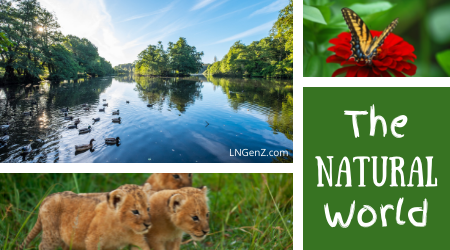What Is Light Pollution and What Is It Doing to Our Birds?
Birds can lose about 50 minutes of sleep per day.
By: Kirsten Brooker | September 10, 2025 | 560 Words

(Photo by: Arterra/Universal Images Group via Getty Images)
Light pollution is artificial light that is unwanted and usually excessive. The bright lights that help keep homes, barns, and businesses safe and functioning around the clock may be disrupting natural patterns of birds. Apparently, those lights throw off the birds’ sleeping schedule and confuse them about the time of day. Still, is this harmful? Let’s take a look!
The Effects of Light Pollution
Here is a list of the harmful effects of light pollution on both humans and animals:
Effects on humans:
- Negatively affects the natural body rhythms of both humans and animals
- Interrupts sleep
- Confuses the circadian rhythm – our internal 24-hour clock that guides day and night activities
- Lowers melatonin production, which leads to lack of sleep, headaches, stress, and anxiety
- Reduces the ability to view celestial objects, like stars
Effects on animals:
- Affects migration patterns
- Disturbs sleep and waking
- Inhibits habitat formation
- Attracts and kills millions of insects, which are a food source for birds and other animals
How Does This Happen?
Light is necessary, but when we overdo it, harm can result. Have you ever seen the cloud of light that surrounds a city at night? It is called sky glow. Most common in urban areas, sky glow refers to the brightening of the night sky.
 Because of its harmful impact on wildlife, the National Park Service (NPS) has prioritized maintaining a naturally dark night sky. The NPS Night Skies Team is responsible for measuring and studying light pollution in 100 national parks around the United States, and it found that every park has some level of light pollution. Other agencies around the world are tasked with finding ways to reduce the use of artificial light during nighttime hours.
Because of its harmful impact on wildlife, the National Park Service (NPS) has prioritized maintaining a naturally dark night sky. The NPS Night Skies Team is responsible for measuring and studying light pollution in 100 national parks around the United States, and it found that every park has some level of light pollution. Other agencies around the world are tasked with finding ways to reduce the use of artificial light during nighttime hours.
One of these is the International Dark Sky Association (IDA). This group educates the public about the harmful effects of light pollution and ways to reduce them. The IDA approved the first US Dark Sky Reserve in Central Idaho, a 1,416-square-mile area, and the organization has since approved 12 more locations that are protected from light pollution.
Let’s Get to the Birds
A couple of professors, one from Southern Illinois University Carbondale and the other an assistant professor at Oklahoma State University, began using a worldwide bird monitoring system, called BirdWeather, to understand how light pollution impacts bird populations. The professors found that in highly light-polluted areas, birds began singing several minutes earlier than those that live outside the illuminated localities. Additionally, the same birds would sing several minutes later into the night. They concluded that the natural singing patterns of birds are being interrupted by the artificial glow.
Some birds, like those with larger eyes, were more affected, while those that tend to make their homes in dark areas were less so. They are now trying to determine how 50 fewer minutes of rest is impacts the birds.
Based on current research, it appears that urban birds may be adjusting to the change; however, it is unsettling that light pollution is disrupting their natural rhythms.

- Light pollution is artificial light that is unwanted and usually excessive.
- The bright lights that help keep homes, barns, and businesses safe and functioning around the clock may be disrupting natural patterns of birds.
- Researchers found that in highly light-polluted areas, birds began singing several minutes earlier than those that live outside the illuminated localities and several minutes later into the night.
















